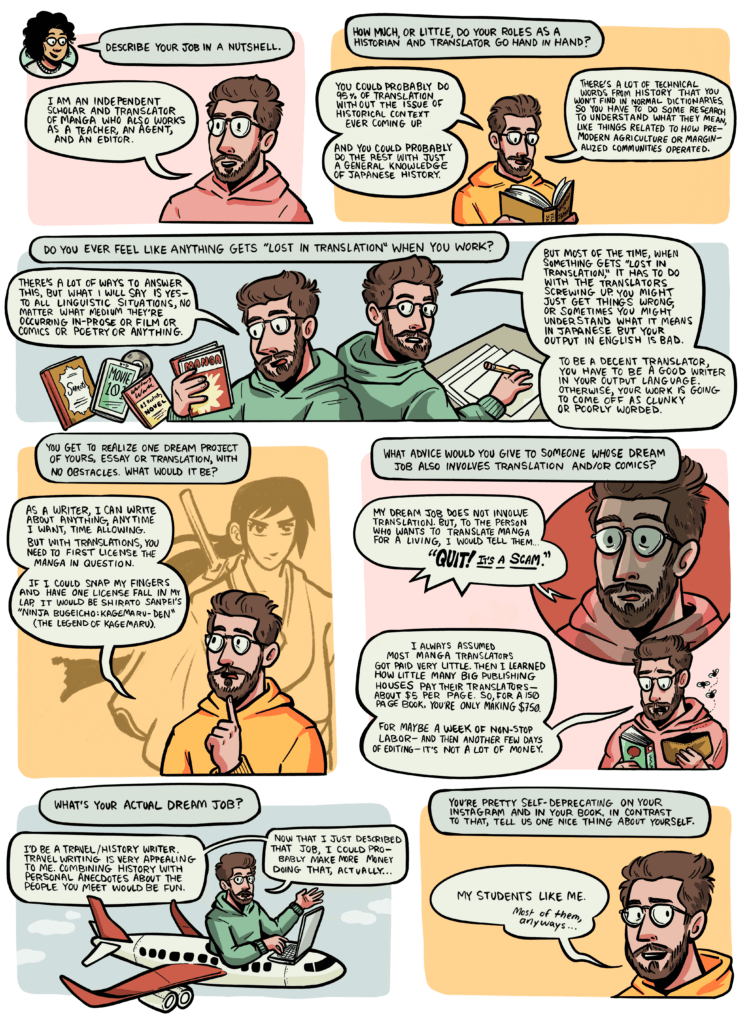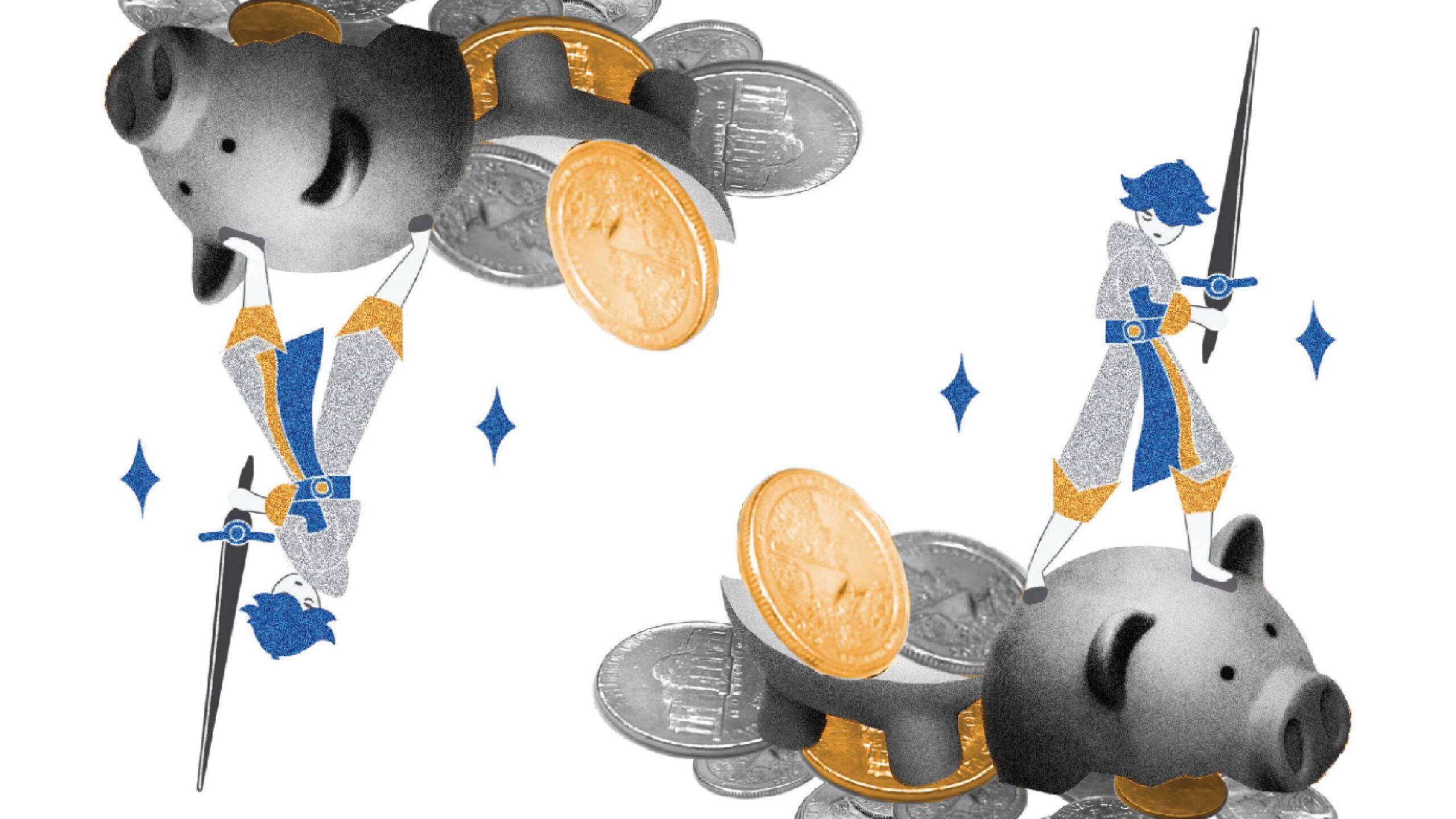Transcript:
Nestor Kok: Describe your job in a nutshell.
Ryan Holmberg: I am an independent scholar and translator of manga, who also works as a teacher, agent, and editor.
NK: How much, or little, do your roles as a historian and translator go hand in hand?
RH: You could probably do 95% of translation without [the issue of historical context] ever coming up. And you could probably do the rest with just a general knowledge of Japanese history.
There’s a lot of technical words from history that you won’t find in normal dictionaries. So you have to do some research to understand what they mean, like things related to how pre-modern agriculture or marginalized communities operated.
NK: Do you ever feel like anything gets, so to speak, “lost in translation” when you work?
RH: There’s a lot of ways to answer this, but what I will say is yes — to all linguistic situations, no matter what the medium they’re occurring in — prose or film or comics or poetry or anything.
But most of the time, when something gets “lost in translation,” it has to do with translators screwing up. You just get things wrong, or sometimes you might understand what it means in Japanese but your output in English is bad. To be a decent translator, you also have to be a good writer in your output language, otherwise [your work] is just going to come off as clunky or poorly worded.
NK: You get to realize one dream project of yours, essay or translation, with no obstacles. What would it be?
RH: As a writer. I can write about anything, anytime I want; time allowing. But with translations, you need to first license the manga in question. If I could just snap my fingers and have one license fall in my lap, it would be Shirato Sanpei’s “Ninja bugeicho Kagemaruden” [The Legend of Kagemaru].
NK: What advice would you give people whose dream jobs also revolve around translation and/or comics?
RH: My dream job does not involve translation. But to the person who wants to translate manga for a living, I would tell them… “Quit! It’s a scam.”
I always assumed most manga translators got paid very little. Then I learned how little many big publishing houses pay their translators — about $5 per page. So, for a 150-page book, you’re only making $750. For maybe a week of non-stop labor — and then another few days of editing — it’s not a lot of money.
NK: What is your actual dream job?
RH: I’d be a travel-slash-history writer. Travel writing is very appealing to me. Combining history with personal anecdotes about the people you meet would be fun. Now that I just described that job, I could probably make more money doing that, actually…
NK: You’re pretty self-deprecating on your Instagram (@mangaberg) and in your work. In contrast to that, tell us one nice thing about yourself.
RH: My students like me. Most of them, anyways…








